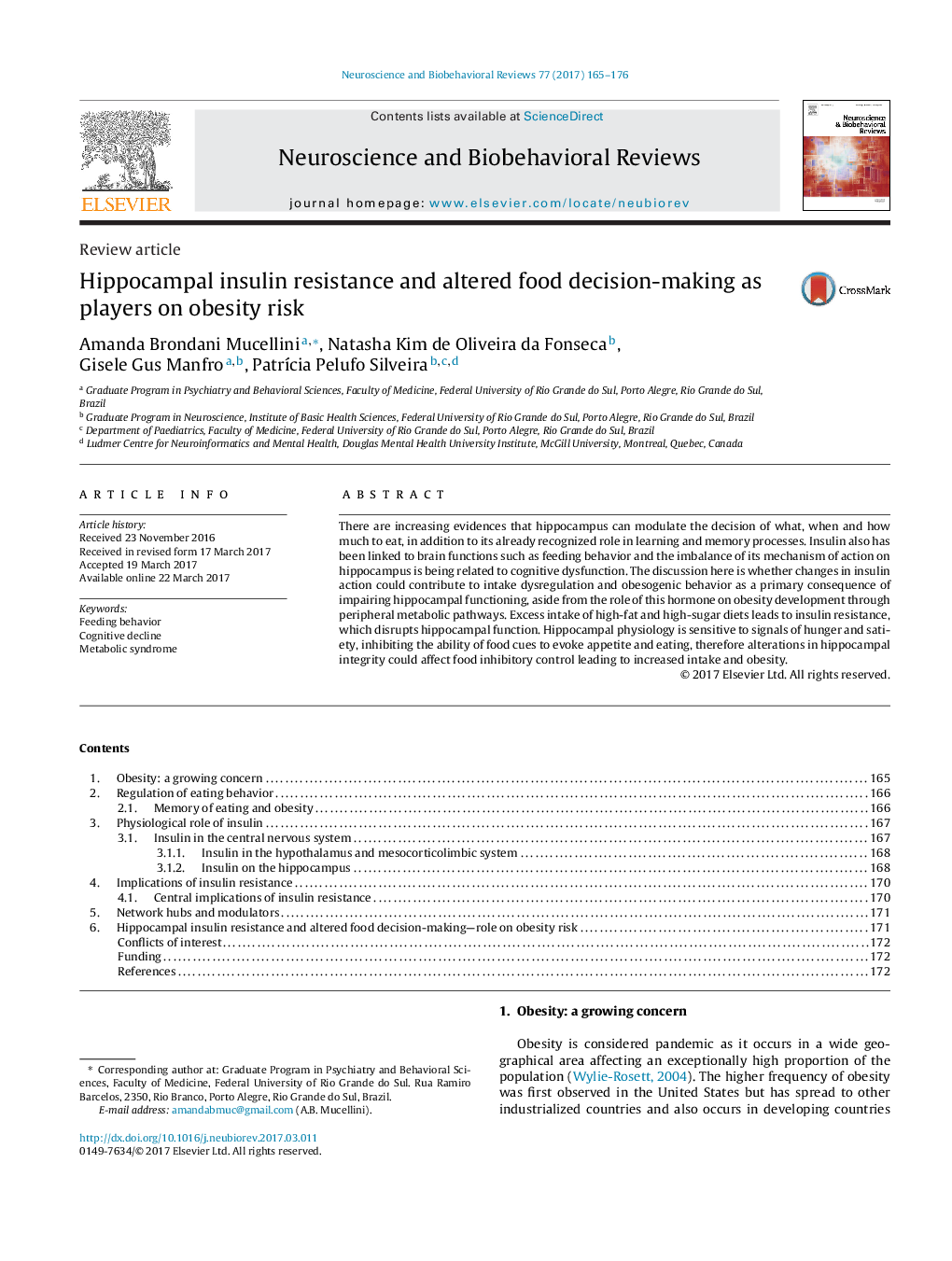| کد مقاله | کد نشریه | سال انتشار | مقاله انگلیسی | نسخه تمام متن |
|---|---|---|---|---|
| 5043562 | 1475295 | 2017 | 12 صفحه PDF | دانلود رایگان |
- Insulin influences feeding behavior and cognition.
- Central insulin resistance can disrupt hippocampal function.
- Changes in hippocampal integrity can affect food inhibitory control.
- Hippocampal insulin resistance can lead to increased intake and obesity.
There are increasing evidences that hippocampus can modulate the decision of what, when and how much to eat, in addition to its already recognized role in learning and memory processes. Insulin also has been linked to brain functions such as feeding behavior and the imbalance of its mechanism of action on hippocampus is being related to cognitive dysfunction. The discussion here is whether changes in insulin action could contribute to intake dysregulation and obesogenic behavior as a primary consequence of impairing hippocampal functioning, aside from the role of this hormone on obesity development through peripheral metabolic pathways. Excess intake of high-fat and high-sugar diets leads to insulin resistance, which disrupts hippocampal function. Hippocampal physiology is sensitive to signals of hunger and satiety, inhibiting the ability of food cues to evoke appetite and eating, therefore alterations in hippocampal integrity could affect food inhibitory control leading to increased intake and obesity.
Journal: Neuroscience & Biobehavioral Reviews - Volume 77, June 2017, Pages 165-176
